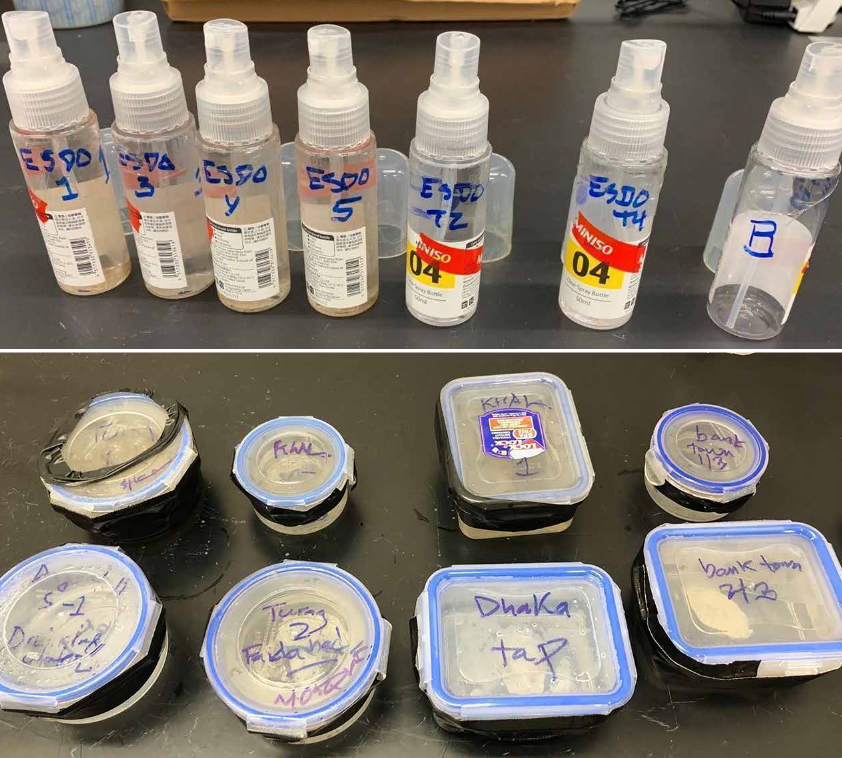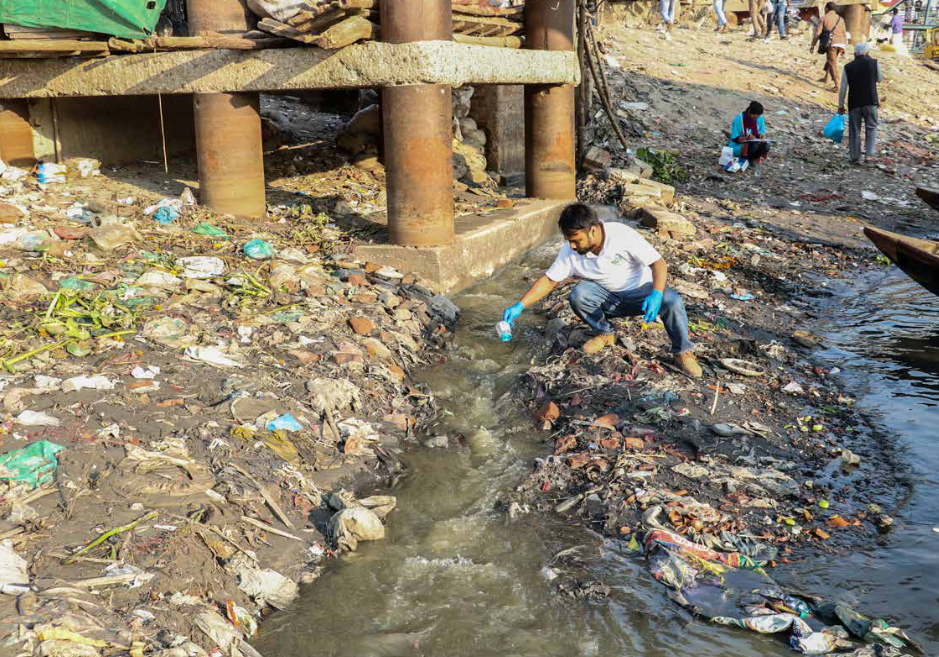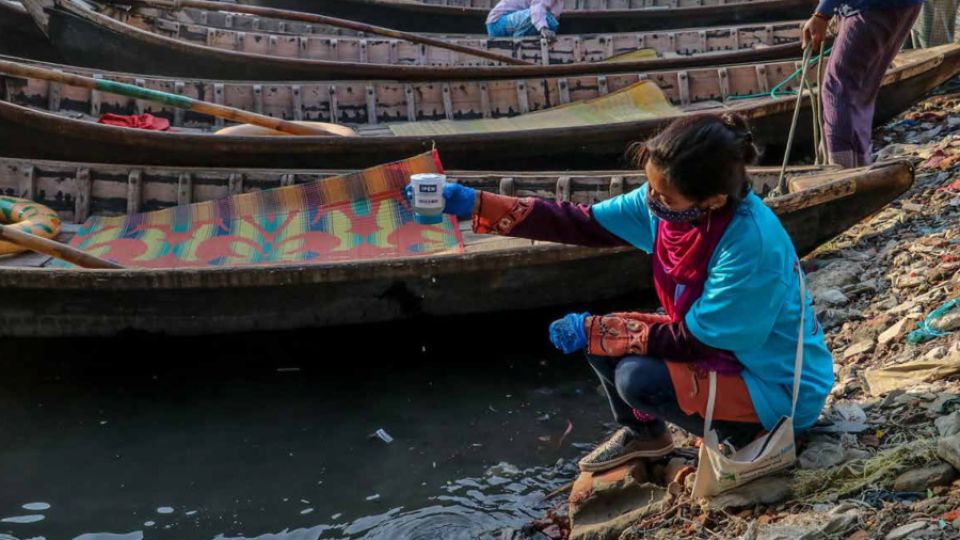PRAGUE/DHAKA - Have you noticed that your new blouse or shirt with a stand-up collar was likely made in Bangladesh? Textile factories, located mainly in the industrial areas of the capital Dhaka, produce clothes for major global fashion brands. However, they are also behind the alarming levels of toxic PFAS in surface and drinking water samples, according to a new study co-authored by Czech scientists.
The new study has been published by ESDO and IPEN, two organisations that advocate for the reduction of hazardous chemicals in the environment. Arnika also contributed to the study. The researchers found that PFAS chemicals, known as 'forever chemicals,' were present in almost all water samples. The levels of PFAS in most of the samples exceeded current or proposed regulatory limits in the European Union, the United States, and the Netherlands. Some samples even contained globally banned PFAS types.
According to the study's co-author, Jitka Straková from Arnika, the use of PFAS in the textile industry is no longer necessary. "Safer alternatives to PFAS in textiles already exist," said Straková, adding that the textile industry should move quickly to phase out the use of PFAS and transparently communicate the PFAS content of their products.
Key findings of the study:
- PFAS were detected in 27 of 31 surface water samples (87 %).
- Of the 27 samples containing PFAS, 18 samples (67 %) contained the globally banned PFAS chemicals PFOA, PFOS and/or PFHxS.
- 19 samples (70 %) exceeded the proposed EU regulatory limit (4.4 ng/l).
- The highest levels of PFAS were found in water from the Karnatali River, where levels were more than 300 times the EU proposed limit.
- Three of the four tap water samples from 2019 contained PFAS above the U.S. drinking water PFOA threshold (4 ng/l).
- PFASs were detected in all five samples of clothing purchased in Bangladesh.
Download and read the whole study HERE

The water samples taken by the Bangladeshi experts, mostly containing dangerous PFAS. Photo ESDO / IPEN
In cases where samples were collected in 2022 upstream and downstream of export processing zones (Dhaka Industrial Zone and Adamjee Industrial Zone), samples collected downstream of these facilities showed higher PFAS concentrations. This reinforces the conclusion that the textile industry is the likely source of PFAS pollution.
The presence of chemicals in some 2022 samples that were not found in 2019 suggests that manufacturers may be switching from banned or regulated PFAS chemicals to unregulated polymer chemicals. However, this shift does not solve the PFAS problem because substitute chemicals are known to degrade into hazardous PFAS, including those banned globally.

Sampling in Adamjee Export Processing Zone, a duty-free production and export economic zone consisting of 229 industrial units. Photo ESDO / IPEN
The study also analysed clothing purchased in Bangladesh, which is another potential source of exposure to the PFAS population. PFASs were identified in all five clothing samples, with one men's jacket containing the globally banned chemical PFOA.
Bangladesh currently lacks a PFAS regulation. The so-called 'forever chemicals' have been linked to negative impacts on fertility, fetal development, thyroid hormone function, immunity, the liver and can cause cancer. Some PFAS have been banned globally under the Stockholm Convention, while others are under review.
Alternatives exist, Bangladesh should adhere to international agreements
"Bangladesh is an international hub for textile production, and emissions of toxic chemicals from this sector pose a higher risk to our people," said Siddika Sultana, Executive Director of ESDO. "The garment export industry should not have a free hand to contaminate our water sources with PFAS. As a party to the Stockholm Convention, Bangladesh should implement PFAS regulations and standards to protect health." Dr. Shahriar Hossain, lead author of the study and advisor to ESDO, added: "We must implement global control of all PFAS chemicals as a class. Regulating thousands of PFAS chemicals one by one would take decades and put our children at risk."
ESDO and IPEN have therefore called on Bangladeshi policymakers to develop a plan to end the use of PFAS and to advocate for addressing PFAS contamination in communities affected by textile production. At the same time, however, the authors of the study stress that the textile companies themselves can have a huge impact on the problem. Fashion brands sourcing products from Bangladesh have a huge influence on the market – and their demand for PFAS-free products could make a significant contribution to addressing this problem. Some brands have already made a commitment to remove PFAS from their products.
For more information, please contact Arnika's international communication officer, Jan Kašpárek: This email address is being protected from spambots. You need JavaScript enabled to view it., +420 770 143 103.

The article was written with the financial support of the EU LIFE programme (LIFE22-GIE-HU-ToxFree LIFE for All). However, the views and opinions expressed are those of the ToxFree LIFE for All project alone and do not necessarily reflect those of the European Union or the LIFE Programme. Neither the European Union nor the granting authorities can be held responsible for them.







